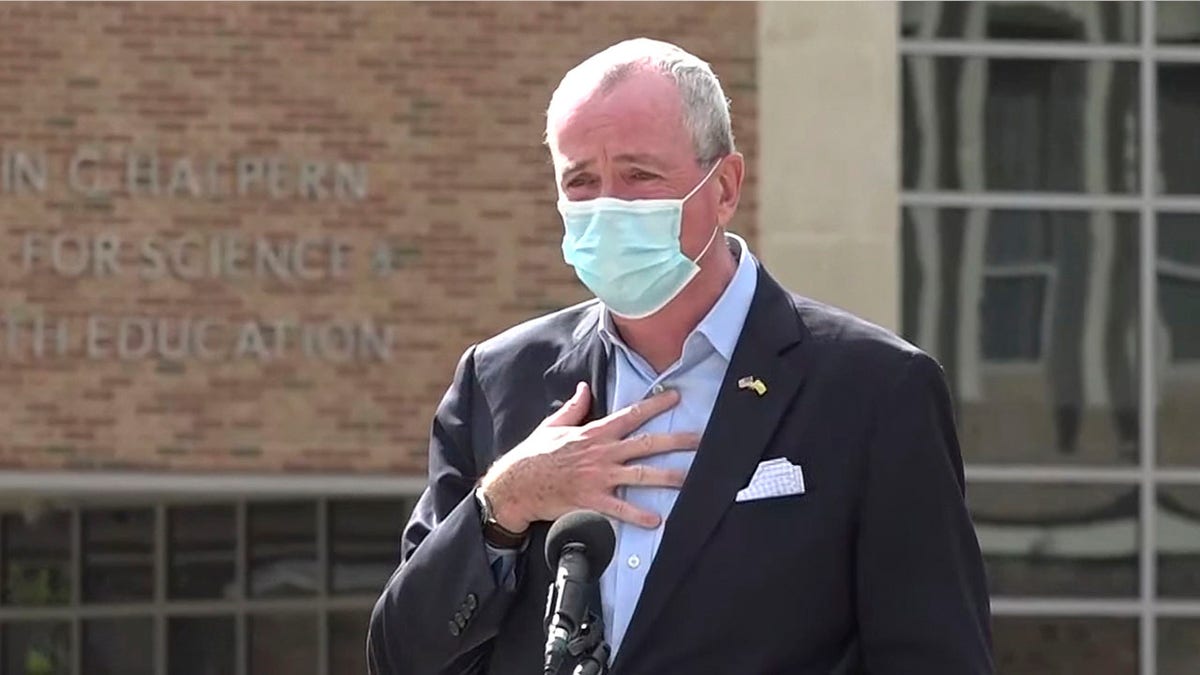Fox News Flash top headlines for Nov. 25
Fox News Flash top headlines are here. Check out what's clicking on Foxnews.com.
All police officers on patrol throughout New Jersey will be required to wear body cameras under a new law passed after the summer’s Black Lives Matter protests.
New Jersey joins five other states that requires law enforcement to wear cameras, according to the National Conference of State Legislatures.
“This is a great day for our state – it is a day for us to redouble our commitment to transparency and accountability in policing our community,” Democratic Gov. Phil Murphy said as he signed the bill into law Tuesday at a live-streamed event. “But it’s also a good day for ensuring that our police are equipped with tools to help them carry out their sworn duties.”
NJ GOV. MURPHY SPEAKS OUT AFTER RESTAURANT SHOWDOWN OVER MASKS, CORONAVIRUS RESTRICTIONS
“They ensure that there’s an impartial record of the facts that can be used in investigations, in our courts, or to provide the best possible training for our police,” he said.
The bill passed in the Legislature after this summer’s protests stemming from videos showing violence involving police, the most prominent of which is George Floyd. Floyd's killing was recorded by a bystander, but the legislation has been around since 2014.
Already about 12,000 officers in the state wear the cameras, but that’s a third of the overall number of officers, according to the governor’s office.
The new law requires remaining departments to equip officers on patrol with the cameras. There are exceptions, though, such as undercover officers or those on administrative duty.

A member of the New Jersey State Police on Saturday September 15, 2018 at Memorial Stadium in Lawrence, Kansas. (Photo by Nick Tre. Smith/Icon Sportswire via Getty Images)
Funding could come from a number of sources, including from state budget appropriations or federal grants. That was a change Murphy added in a conditional veto of the measure in October. The Democrat-led Legislature agreed to the governor’s changes and passed the bill in November with large bipartisan majorities. An earlier version called for funds to come from a state account that had just $1 million available.
The governor’s office estimates that outfitting about 23,000 officers with cameras could cost about $56 million. The bill doesn’t include such funding, but lawmakers have introduced a funding measure that sets aside $58 million for the cameras. The measure is still pending in the Legislature, but has support from key leaders.
Police unions have backed the legislation. Pat Colligan, the president of the New Jersey State Policemen’s Benevolent Association, said cameras bring transparency to the job and show the public what the work of officers is like.
He cautioned, though, that the major cost of the cameras doesn’t stem from initially buying them. Instead, buying digital storage space and hiring additional staff to handle the increased number of public records requests are major costs, he said.
He urged officials to consider how to fund these as well.

Gov. Phil Murphy tells attendees at an event in Blackwood, N.J., on Oct. 21. (New Jersey Office of the Governor via AP, File)
Murphy on Tuesday also signed a related bill laying out how the cameras should be regulated, setting out when they can be deactivated and how long footage must be kept.
“Ensuring that all departments across the state are adhering to uniform rules and requirements for body camera use is critical for this technology to be successful,” he said during the signing event.
CLICK HERE TO GET THE FOX NEWS APP
Across the country, police departments have ramped up the use of body cameras, which have been praised for their potential to show the truth of an encounter with officers. But with budget crunches looming and cries to “defund the police,” some ask if taxpayer dollars spent on police body cameras have provided the accountability and transparency expected.
The other states requiring the cameras are California, Connecticut, Florida, Nevada and South Carolina.
The Associated Press contributed to this report.



